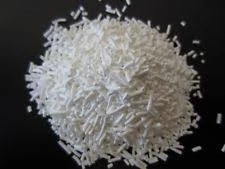
sorbic acid food preservative
Sorbic Acid A Key Player in Food Preservation
Sorbic acid, a natural organic compound, has long been recognized as an essential food preservative in the modern food industry. Its unique properties make it an effective agent against mold, yeast, and certain bacteria, greatly extending the shelf life of various food products. This article delves into the characteristics, applications, safety, and the future prospects of sorbic acid in food preservation.
What is Sorbic Acid?
Chemically known as 2,4-hexadienoic acid, sorbic acid is a unsaturated fatty acid. Discovered in the 1850s, it is derived from the berries of the rowan tree (Sorbus aucuparia), from which it gets its name. Today, sorbic acid is produced synthetically and is widely used in the food industry as a preservative, largely because of its ability to inhibit the growth of molds and yeasts, which are common spoilage agents in a variety of food products.
How Does Sorbic Acid Work?
Sorbic acid exerts its antimicrobial effects primarily by disrupting the cellular membrane of molds and yeast, thereby inhibiting their growth and reproduction. This mechanism is particularly crucial in foods that have high moisture content or a low pH—environments where microorganisms are likely to thrive. Sorbic acid is most effective in preserving products that include fruits, baked goods, beverages, and dairy items, among others.
Applications in the Food Industry
The versatility of sorbic acid as a food preservative is one of its greatest advantages. It is commonly used in
- Dairy Products Sorbic acid helps to prolong the shelf life of cheese, yogurt, and other dairy products by preventing mold growth. - Baked Goods In items such as bread and cakes, sorbic acid effectively controls spoilage from yeast and molds, ensuring freshness and quality.
- Beverages Many fruit juices and soft drinks contain sorbic acid to prevent spoilage and maintain flavor stability
.sorbic acid food preservative

- Processed Foods It is also used in various processed foods like salads, sauces, and condiments to protect against microbial spoilage.
Safety and Regulation
Sorbic acid is generally recognized as safe (GRAS) by the U.S. Food and Drug Administration (FDA) and is permitted in food products within specific limits. The acceptable daily intake of sorbic acid has been established, and numerous studies have demonstrated its low toxicity levels when consumed at typical dietary levels. Nevertheless, as with any food additive, individuals may have varying levels of sensitivity to sorbic acid, and allergic reactions, though rare, can occur.
Advantages Over Other Preservatives
Compared to traditional preservatives such as sodium benzoate and potassium sorbate, sorbic acid has several advantages. It often poses fewer health risks, has a lower potential for causing adverse reactions, and is effective in lower concentrations. Additionally, sorbic acid does not alter the taste or smell of the food, making it a consumer-friendly option.
The Future of Sorbic Acid in Food Preservation
As the demand for clean-label products increases, food manufacturers are turning to natural preservatives, including sorbic acid, due to its effectiveness and safety profile. Innovative research is being explored to enhance its preservative capabilities, including the development of sorbic acid-based nanomaterials that can be used in food packaging.
Moreover, biotechnological advancements may lead to the discovery of novel methods to synthesize sorbic acid more sustainably, reducing environmental impact while meeting consumer demand.
Conclusion
Sorbic acid plays an integral role in food preservation, enabling manufacturers to provide safe, high-quality products that retain their freshness over time. With its effectiveness, safety, and growing popularity in the clean-label movement, sorbic acid stands out as a crucial ally in the ongoing quest to enhance food shelf life while ensuring consumer health and satisfaction. As the food industry continues to evolve, sorbic acid will undoubtedly remain a key player in food preservation strategies for years to come.
-
Pure Sodium Dichloroisocyanurate Dihydrate | Powerful DisinfectantNewsAug.29,2025
-
Industrial Chemicals: Quality & Purity for Every IndustryNewsAug.28,2025
-
Nitrile Rubber Honoring Strict Production StandardsNewsAug.22,2025
-
Aspartame Ingredients Honoring Food Safety ValuesNewsAug.22,2025
-
Fertilizer for Balanced Plant NutritionNewsAug.22,2025
-
Cyanide Gold Processing with High Purity AdditivesNewsAug.22,2025
-
Formic Acid in Textile Dyeing ApplicationsNewsAug.22,2025
Hebei Tenger Chemical Technology Co., Ltd. focuses on the chemical industry and is committed to the export service of chemical raw materials.
-

view more DiethanolisopropanolamineIn the ever-growing field of chemical solutions, diethanolisopropanolamine (DEIPA) stands out as a versatile and important compound. Due to its unique chemical structure and properties, DEIPA is of interest to various industries including construction, personal care, and agriculture. -

view more TriisopropanolamineTriisopropanolamine (TIPA) alkanol amine substance, is a kind of alcohol amine compound with amino and alcohol hydroxyl, and because of its molecules contains both amino and hydroxyl. -

view more Tetramethyl Thiuram DisulfideTetramethyl thiuram disulfide, also known as TMTD, is a white to light-yellow powder with a distinct sulfur-like odor. It is soluble in organic solvents such as benzene, acetone, and ethyl acetate, making it highly versatile for use in different formulations. TMTD is known for its excellent vulcanization acceleration properties, which makes it a key ingredient in the production of rubber products. Additionally, it acts as an effective fungicide and bactericide, making it valuable in agricultural applications. Its high purity and stability ensure consistent performance, making it a preferred choice for manufacturers across various industries.





